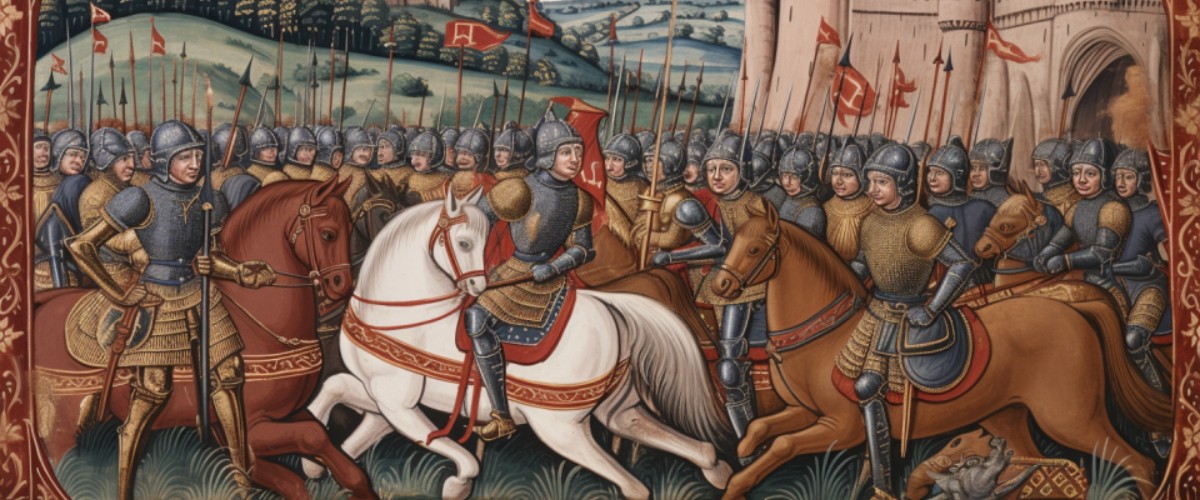The Norman Conquest, a pivotal event in 1066, forever altered England’s political, social, and linguistic landscape. Not merely a regional shift, this conquest rippled through Europe, creating nuanced changes that gradually reshaped medieval societal structures and relationships between various European nations.
Background
A Throne Contested
- Edward the Confessor’s Death: The king died in January 1066 without an heir, plunging England into a succession crisis.
- Harold Godwinson: Crowned as King Harold II, though his claim was contested by others, including William of Normandy.
- William of Normandy: Asserted that Edward promised him the throne and that Harold swore to support his claim.
Turbulent Times
- Viking Invasions: The Norse Vikings, led by Harald Hardrada, posed additional threats to the already unstable England.
- Battle of Stamford Bridge: Harold defeats the Vikings but is forced to quickly march south to face William’s invading force.
Major Happenings
The Pivotal Battles
- Battle of Hastings: Fought on 14 October 1066 between William’s Normans and Harold’s English forces.
- Harold’s Death: The English king was killed during the battle, symbolically signalling the end of Anglo-Saxon England.
The Norman Advance
- Claiming the Throne: William was crowned King of England on Christmas Day 1066.
- Resistant Nobility: Some Anglo-Saxon nobles resisted Norman rule, sparking numerous revolts.
- Norman Strongholds: To maintain control, William commissioned the construction of castles, including the Tower of London.
Immediate Outcomes
Shifts in Power and Culture
- Feudal System: William implemented the Norman feudal system, restructuring societal hierarchies.
- Displaced Nobility: Anglo-Saxon nobility was largely replaced by Norman lords.
- Architectural Impact: Normans introduced Romanesque architecture, visibly altering the English landscape with their distinctive castles and churches.
Linguistic Transformations
- French Influence: The Normans introduced a wealth of French words into the English language, deeply enriching and altering it.
Long-term Impact
Cultural and Social Evolution
- Anglo-Norman England: A blend of Norman and Anglo-Saxon customs gradually formed a distinctive Anglo-Norman culture.
- Language Development: The amalgamation of Old English and Norman French ultimately developed into Middle English.
Political Implications
- Strengthened Monarchy: The centralized power of the monarchy under the Normans laid foundations for the robust English monarchy of the future.
- Legal Framework: Normans initiated legal reforms and standardizations that became foundational to English common law.
Conclusion
The Norman Conquest was not a mere shift of power from one monarch to another but a fundamental transformation of England at every conceivable level — cultural, political, social, and linguistic. This transformation rippled through the generations, subtly shaping the trajectory not just of England, but of Europe as a whole. The entwining of French and English societies through the Norman Conquest influenced geopolitical relationships and cultural exchanges in the medieval period, reverberations of which subtly linger even in the contemporary era. Consequently, this pivotal point in history continues to be crucial for understanding the nuanced tapestry of modern England and its intricate connections to broader European history.








